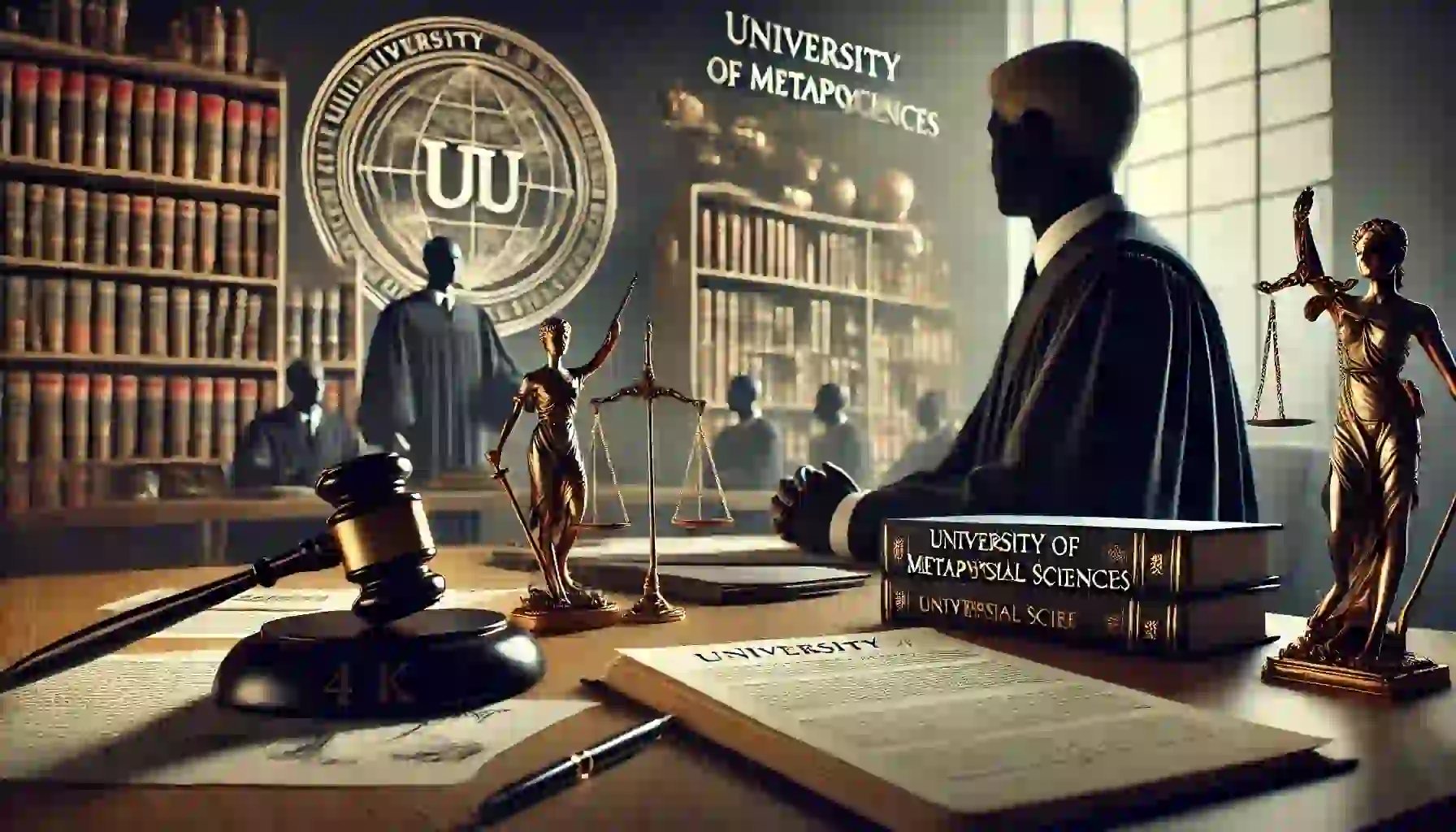Introduction
Legal disputes can significantly impact educational institutions, affecting their reputation, operations, and stakeholders. The University of Metaphysical Sciences (UMS) is currently navigating such challenges, facing lawsuits that have raised questions about its practices and future. This article delves into the intricacies of these legal proceedings, offering an in-depth analysis of their origins, developments, and potential consequences.
Background of the University of Metaphysical Sciences
Founded with the mission to provide comprehensive education in metaphysical studies, UMS has established itself as a leader in the field. The university offers a range of programs, including bachelor’s, master’s, and doctoral degrees, catering to individuals seeking spiritual growth and knowledge. Over the years, UMS has attracted a global student base, drawn by its unique curriculum and holistic approach to education.
Overview of the Legal Disputes
3.1 Initial Allegations and Lawsuits
The legal challenges for UMS began in 2017 when the International Metaphysical Ministry (IMM) filed a lawsuit alleging trademark infringement. IMM claimed that UMS’s use of certain names and symbols was causing confusion among students and infringing upon IMM’s intellectual property rights. This lawsuit marked the beginning of a series of legal battles between the two institutions.
3.2 Subsequent Legal Actions
Following the initial lawsuit, additional legal actions ensued. In 2019, a settlement was reached, aiming to resolve the disputes amicably. However, in 2021, IMM alleged that UMS had violated the terms of the settlement, leading to a new lawsuit. This ongoing legal battle has been a focal point in the metaphysical education community, drawing attention to the complexities of trademark laws and institutional conduct.
Current Status of the Lawsuit

4.1 Upcoming Trial Date
As of March 2025, the lawsuit between UMS and IMM is scheduled for trial from June 16 to June 20, 2025. This trial is expected to address the allegations of trademark infringement and breach of settlement terms, with both parties preparing to present their cases in court.
4.2 UMS’s Position and Defense
UMS has consistently denied the allegations, asserting that it has operated within legal boundaries and adhered to all agreements. The university maintains that the lawsuits are unfounded and expresses confidence in a favorable outcome. UMS has also emphasized its commitment to transparency and integrity throughout the legal proceedings.
Implications for Students and Faculty
5.1 Accreditation and Program Continuity
One of the primary concerns among students and faculty is the potential impact of the lawsuit on UMS’s accreditation and the continuity of its programs. UMS has assured its community that the legal disputes have not affected its accreditation status or the delivery of educational services. The university continues to enroll new students and conduct classes as scheduled.
5.2 Support for the University Community
Recognizing the uncertainty that legal disputes can bring, UMS has implemented support measures for its community. Regular updates are provided to keep stakeholders informed, and counseling services are available to address any concerns. The university’s leadership has also engaged in open dialogues with students and faculty to reinforce their commitment to the institution’s mission and values.
Public Perception and Media Coverage
6.1 Media Coverage
The lawsuits involving UMS have attracted media attention, with various outlets reporting on the developments. Coverage has ranged from factual reporting of court proceedings to opinion pieces analyzing the potential impact on the metaphysical education sector. This media attention has contributed to public discourse on the legitimacy and challenges of alternative educational institutions.
6.2 Public Opinion
Public opinion on the lawsuits is divided. Supporters of UMS view the legal challenges as unfounded attacks on a reputable institution, while critics question the university’s practices and credibility. Online forums and social media platforms have become venues for debates, reflecting the polarized views within the broader community.
Legal Perspectives and Expert Opinions
7.1 Trademark Infringement in Educational Institutions
Legal experts highlight that trademark infringement cases in the education sector are complex, often involving nuanced interpretations of branding and intellectual property laws. The outcome of the UMS lawsuit could set precedents for how similar cases are handled in the future, particularly concerning non-traditional educational institutions.
7.2 Implications for Similar Institutions
The ongoing legal battle between UMS and IMM may have broader implications for other metaphysical and alternative education providers. Institutions offering similar programs might reevaluate their branding strategies and legal compliance to mitigate potential risks. This case underscores the importance of clear trademarks and adherence to legal agreements within the educational landscape.
Future Outlook
8.1 Potential Outcomes of the Lawsuit
There are several possible outcomes for the University of Metaphysical Sciences (UMS) in this lawsuit. The court could rule in favor of UMS, allowing the institution to continue operating without restrictions. Alternatively, if the ruling favors the International Metaphysical Ministry (IMM), UMS may need to rebrand, pay damages, or modify its operations. A settlement outside of court is also possible, potentially bringing the dispute to an end without further litigation.
Regardless of the outcome, UMS is expected to continue advocating for its legitimacy and commitment to metaphysical education. Legal experts suggest that the final decision could influence policies related to metaphysical institutions and their intellectual property rights.

8.2 UMS’s Strategic Plans
In response to the lawsuit, UMS has developed strategic plans to ensure the university’s sustainability. These include:
- Strengthening its legal and compliance teams to avoid future legal disputes.
- Expanding its academic offerings to attract a broader student base.
- Enhancing communication with students and faculty to maintain trust.
- Exploring alternative branding strategies in case modifications are needed.
- Partnering with legal advisors to create policies that safeguard against similar claims in the future.
By implementing these measures, UMS aims to maintain its credibility and continue serving students worldwide.
FAQs
9.1 What is the lawsuit against the University of Metaphysical Sciences about?
The lawsuit primarily involves claims of trademark infringement and breach of settlement terms filed by the International Metaphysical Ministry (IMM). IMM argues that UMS has used intellectual property that causes confusion among students.
9.2 How does the lawsuit impact current students at UMS?
Currently, the lawsuit has not disrupted UMS’s academic programs. Students can continue their studies without interruption, as the institution remains operational.
9.3 Is UMS still accredited despite the legal issues?
Yes, UMS maintains its accreditation and continues to offer degrees in metaphysical sciences. The lawsuit has not affected its accreditation status.
9.4 What happens if UMS loses the lawsuit?
If UMS loses the lawsuit, it may need to change its branding, pay damages, or enter into a new settlement agreement. However, it is unlikely that the university will shut down entirely.
9.5 Has UMS responded to the allegations?
Yes, UMS has denied the claims and stated that it has adhered to legal agreements. The university remains confident in a favorable ruling.
9.6 Where can I find official updates on the lawsuit?
Official updates are available on the UMS website, legal news platforms, and reputable educational news sources.
Conclusion
The ongoing lawsuit involving the University of Metaphysical Sciences is a complex legal matter with significant implications for the institution and the broader metaphysical education community. While the outcome remains uncertain, UMS continues to defend its position and assure students and faculty of its stability.
Regardless of the final ruling, this case highlights the importance of trademark compliance and legal clarity in alternative educational institutions. As UMS navigates this challenge, its commitment to metaphysical studies and academic excellence remains strong.
